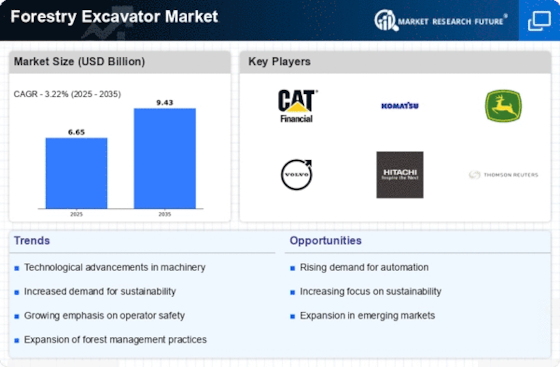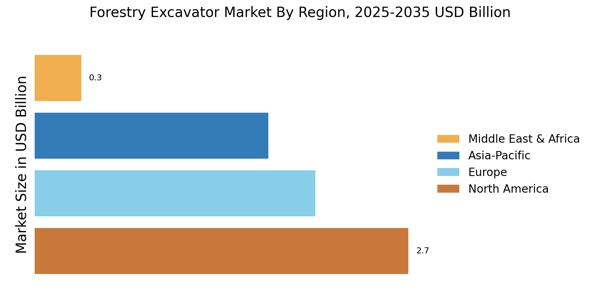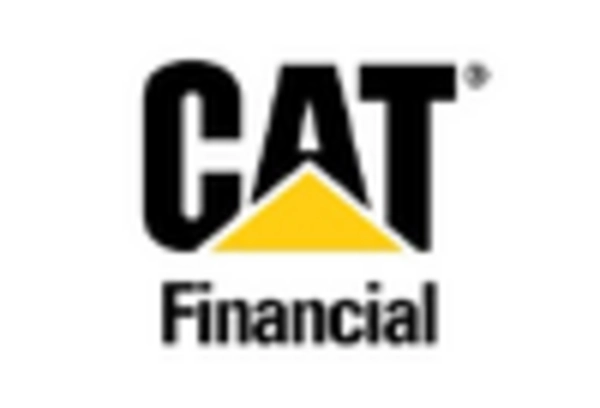Regulatory Compliance
Regulatory compliance is a significant driver in the Forestry Excavator Market, as governments worldwide implement stricter environmental regulations. These regulations often mandate the use of specific machinery that meets safety and environmental standards. Companies operating in the forestry sector must invest in modern excavators that comply with these regulations to avoid penalties and ensure sustainable operations. This compliance not only enhances operational efficiency but also positions companies favorably in the market, as consumers increasingly prefer businesses that adhere to environmental standards.
Technological Innovations
Technological advancements are reshaping the Forestry Excavator Market, with innovations such as automation and telematics enhancing operational efficiency. Modern forestry excavators are now equipped with advanced features that allow for precision in logging operations, reducing waste and improving productivity. The integration of GPS and remote monitoring systems enables operators to optimize their machinery usage, which is crucial in a competitive market. As these technologies become more prevalent, they are expected to drive growth in the forestry excavator sector, as companies seek to leverage these advancements to gain a competitive edge.
Sustainability Initiatives
The Forestry Excavator Market is increasingly influenced by sustainability initiatives, as companies strive to minimize their environmental impact. The push for sustainable forestry practices has led to the adoption of eco-friendly machinery, including advanced forestry excavators designed to reduce soil disturbance and protect biodiversity. This shift is supported by various environmental regulations that encourage responsible logging practices. As a result, the market for forestry excavators that meet these sustainability criteria is likely to expand, reflecting a broader trend towards environmentally conscious operations in the forestry sector.
Increased Demand for Timber
The Forestry Excavator Market is experiencing heightened demand for timber, driven by the construction and furniture sectors. As urbanization continues to expand, the need for sustainable timber sources has surged. This trend is likely to propel the demand for forestry excavators, which are essential for efficient timber harvesting. According to recent data, the timber market is projected to grow at a compound annual growth rate of approximately 4.5% over the next few years. Consequently, forestry excavators are becoming indispensable tools for companies aiming to meet this rising demand while adhering to sustainable practices.
Rising Infrastructure Development
The Forestry Excavator Market is poised for growth due to rising infrastructure development projects. As nations invest in infrastructure, the demand for raw materials, including timber, is expected to increase. This trend necessitates the use of efficient forestry excavators to facilitate the harvesting and processing of timber. With infrastructure projects projected to grow at a steady pace, the need for advanced machinery that can handle large-scale operations will likely drive the forestry excavator market forward. Companies that can provide reliable and efficient excavators will be well-positioned to capitalize on this trend.

















